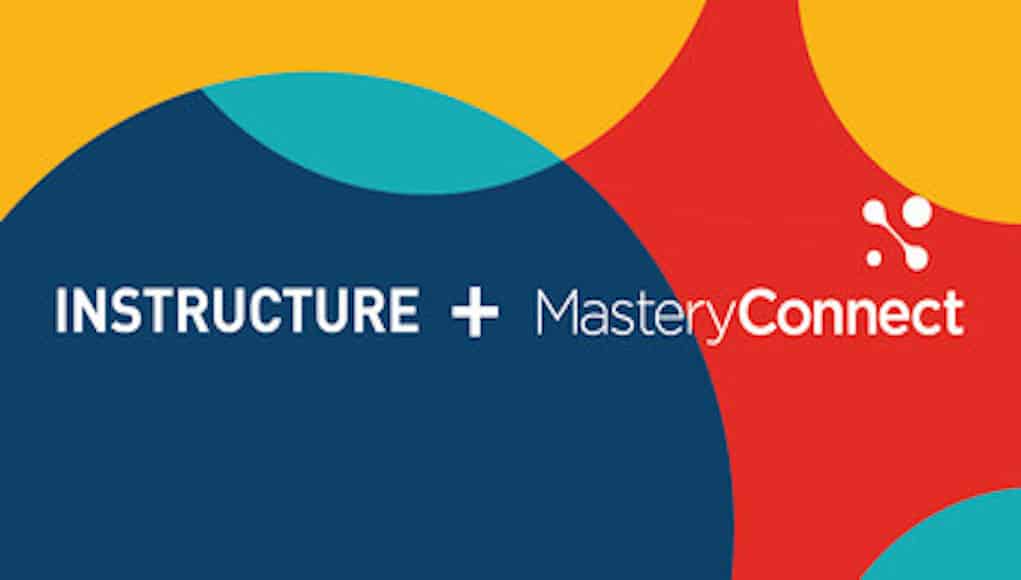Canvas Adds Assessment Tools, Wants to Help End The Big Test

Two years ago Educause laid out a vision for Next Generation Digital Learning Environment– a step beyond a learning management system (LMS) with expanded personalization, collaboration, interoperability, and analytics.
In the last few months, Instructure, the publicly-traded Salt Lake City learning platform company, acquired companies moving it closer to the next-gen vision. They provide Canvas for education and Bridge for business.
In February, Instructure acquired San Diego based e-portfolio partner company Portfolium. For almost five million students and 3,600 postsecondary institutions, Portfolium has provided a platform for showcasing great work and making career connections.
In April, Instructure acquired MasteryConnect, a leader in formative assessment an another Silicon Slopes startup. Mick Hewitt, CEO of MasteryConnect will stay on as GM of MasteryConnect.
Canvas already has LTI connections with MasteryConnect making it easy to deliver assessments through Canvas and pass results back to the gradebook.
Perhaps most interesting about the announcement is that Instructure has adopted the MasteryConnect stance on the importance of formative assessment and why this (and similar edtech developments) marks the beginning of the end of standardized testing.
“We’re seeing the writing on the wall” for big end of year tests, said Mitch Benson, SVP of Product at Instructure. He believes “folks are more interested in assessments that happen regularly in the classroom and which are more predictive of student outcomes.”
The big bet (that we described last week) is that helping states replace high-stakes, end-of-year testing with innovative assessment models.
MasteryConnect co-founder Trenton Goble (now VP K-12 Learning at Instructure) made this argument in his 2016 book Reclaiming the Classroom: How America’s Teachers Lost Control of Education and How They Can Get It Back. He said that teaching boils down to three actions: identifying student levels of readiness and understanding, targeting students for any needed intervention, and self-evaluating instructional practice. Goble argued that quality formative assessment informs practice and enough of it (what David Conley calls cumulative validity) obviates the need for the big test.
Instructure CEO Dan Goldsmith is on board, “Today’s educators are trying to move away from archaic, end-of-year testing and looking for more intuitive evaluation models,”
Hewitt is excited about their increased ability to bring better data to more teachers and encouraged by the growing interest in many states growing in quality formative assessment.
For more, see:
- A Proposal to End Standardized Testing
- Reclaiming the Classroom: How America Can Move Past Standardized Tests (review of Trenton Goble’s book)
Stay in-the-know with innovations in learning by signing up for the weekly Smart Update.







0 Comments
Leave a Comment
Your email address will not be published. All fields are required.